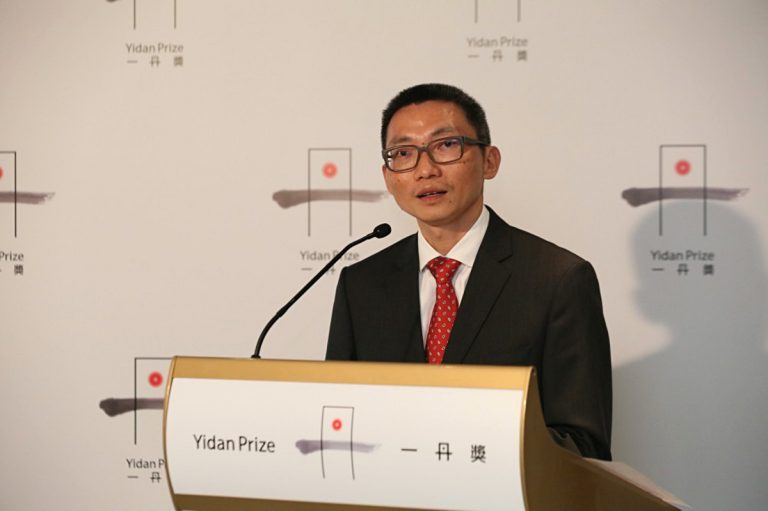
Charles Chen Yidan, co-founder of Tencent, one of China’s largest internet service companies, has established the most valuable education prize in the world, which will award close to US$8 million to two research projects each year.
Chen hopes the Yidan Prize will help fund the expansion of innovative education research projects to be replicated across the world.
The prize is currently open for nominations until the end of March, and some of the world’s top institutions, such as Harvard University and the Massachusetts Institute of Technology (MIT), have already submitted several nominations.
Golden idea https://t.co/s0FmRdoJeH
— BBC Education (@bbceducation) January 18, 2017
However, according to Chen, winners will be chosen based on whether the project is “innovative and sustainable”, so even local projects have a fighting chance at winning.
“As long as an idea is replicable in other regions, we can give them an award,” Chen told the BBC.
Prize-winners will be selected by an independent committee of educational experts led by Dr Koichiro Matsuura, former director-general of UNESCO.
Contrary to China’s current education system, which places great importance on rote learning and standardised testing, Chen believes in holistic learning and “whole-person development”.
Through the prize, Chen also aims to get universities and governments to focus on future trends in education.
“We find that no matter whether people come from a rich or developing country, in the East or the West, they are talking about similar concerns,” he said.
Chinese billionaire's Yidan Prize for educational research and development |The Globe and Mail – https://t.co/I0KNzeFI35 #cdnpse #pse #china
— Aaron T. Francis (付大任) (@mraaronfrancis_) January 3, 2017
Prior to this, Chen had founded Wuhan College, a private university in China which embodies his educational philosophy.
The college moulded top students to be able to join China’s highly-competitive technology industry.
However, Chen was dissatisfied with the college’s limited reach, and came up with the idea to create an international education grant to help improve education for students around the world.
Naturally, Chen believes that technology will play a big role in the future of education, especially big data.
By compiling and analysing big data generated by students, Chen is confident that educators can provide students with the personalised education that they need.
Chen also sees the potential in using retired teachers for their experience: “They are a valuable resource that we need to make better use of.”
https://twitter.com/tesusa/status/814240796505493504
Despite the lure of a large cash prize, some academics remain skeptical.
Dan Sarofian-Butin, founding dean of the school of education and social policy at Merrimack College in Massachusetts, said that giving a one-off cash prize was probably a poor way of achieving change.
Instead, he hopes that the Yidan Prize Foundation, which manages the prize, will “nurture and sustain its winners over a period of years”.
Andreas Schleicher, education director at the OECD, however, thinks that the prize would be a good incentive to encourage innovation in education.
“When we surveyed teachers, less than a quarter of them said they would be recognised for greater levels of innovation.”
“The highly industrial and compliance-based organisation of education generally means that even where good ideas are generated, they don’t scale and spread,” he said.
The winners of the inaugural Yidan Prize are expected to be announced this September.
Liked this? Then you’ll love these…
China kicks off international scholarships to boost education in Silk Road region
China aims to cement position as scientific powerhouse with increased government spending on R&D







